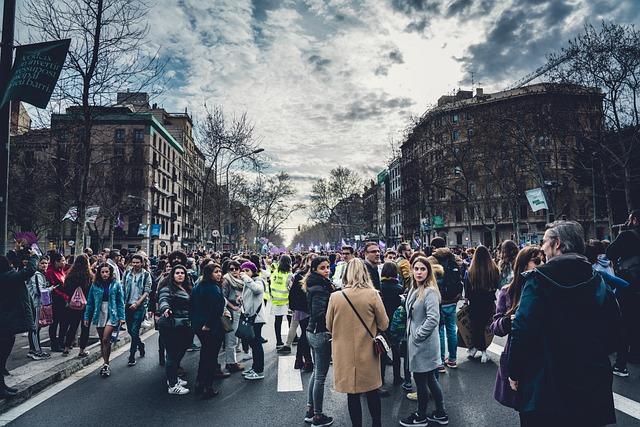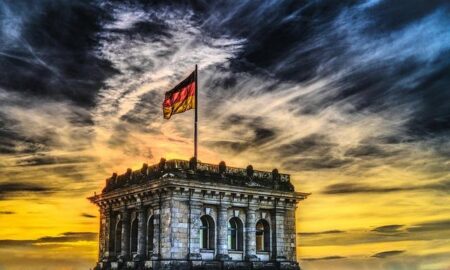Morocco has been shaken by a wave of violent clashes as thousands of young protesters took to the streets to denounce shortcomings in the country’s health and education systems. The unrest, which erupted in several cities, highlights growing frustration among the nation’s youth over inadequate government services and rising social inequalities. Authorities have responded with heightened security measures as tensions continue to escalate, drawing widespread attention both domestically and internationally.
Morocco Faces Rising Unrest as Youths Demand Health and Education Reforms
Tensions escalated dramatically in several Moroccan cities this week as thousands of young protesters took to the streets demanding urgent reforms in the country’s beleaguered health and education sectors. Frustration with overcrowded hospitals, scarcity of medical supplies, and outdated school curricula has fueled widespread discontent among the youth. Clashes with security forces resulted in numerous injuries and multiple arrests, reflecting a deepening societal rift and growing impatience with government inaction.
Key demands voiced during the demonstrations include:
- Increased funding for public hospitals and clinics
- Modernization of educational materials and teaching methods
- Greater accountability and transparency in resource allocation
- Expanded access to mental health services for students
Analysts warn that unless authorities address these issues expansively and swiftly, Morocco risks prolonged instability as young citizens continue to push for a future where basic rights to education and health are guaranteed and respected.
Analyzing the Root Causes Behind the Moroccan Youth Protests
The unrest swirling among Moroccan youths is rooted deeply in systemic challenges that have long plagued the nation’s social fabric. High unemployment rates, especially among young graduates, have created widespread frustration, with many feeling excluded from the economic progress enjoyed by other segments of society. Additionally, despite government efforts, glaring deficiencies in the healthcare infrastructure leave many without access to adequate medical services, fueling feelings of neglect and disenfranchisement.
At the core of these protests are demands for substantial reforms that address:
- Improved quality and accessibility in public education
- Expansion and modernization of healthcare facilities
- Greater employment opportunities aligned with educational qualifications
- Transparent governance and increased youth participation in policy-making
| Key Issues | Impact on Youth |
|---|---|
| Education Quality | Limited skill development, low employability |
| Healthcare Access | Increased health risks, financial strain on families |
| Economic Opportunities | Rising unemployment, social marginalization |
Government Response and Security Measures Amid Growing Violence
In an effort to restore order, Moroccan authorities have ramped up their presence across the affected regions, deploying additional police forces to critical areas witnessing violent unrest. Officials have emphasized a dual focus on maintaining public safety while ensuring the right to peaceful protest. Several rapid-response units have been strategically positioned to prevent the escalation of clashes, and curfews have been temporarily imposed in the most volatile cities. Surveillance measures, including drone monitoring and increased checkpoints, have also been introduced as part of the comprehensive security strategy.
Key actions taken by the government include:
- Deployment of over 3,000 security personnel to high-risk zones
- Implementation of curfew hours from 9 PM to 5 AM in select urban centers
- Temporary suspension of internet services in areas with recurrent violence to disrupt coordination efforts
- Launching community dialogue sessions aimed at addressing protesters’ demands peacefully
| Security Measure | Scope | Purpose |
|---|---|---|
| Curfew Implementation | Major cities (Casablanca, Rabat, Marrakech) | Limit nighttime unrest |
| Increased Patrols | Hotspot neighborhoods | Prevent clashes and safeguard civilians |
| Internet Suspension | Selected areas with violent outbreaks | Disrupt violent coordination |
| Dialogue Initiatives | Nationwide | Address public grievances |
Policy Recommendations to Address Systemic Issues in Health and Education
Addressing the deep-rooted challenges within Morocco’s health and education systems requires a multifaceted policy approach. Investment in infrastructure is paramount, ensuring that hospitals and schools across urban and rural areas are adequately equipped and staffed. Policies should prioritize accessible healthcare services, including mental health support, and promote continuous professional development for educators and medical personnel. Encouraging community involvement in decision-making processes can also amplify localized needs and solutions, fostering greater accountability and responsiveness.
Moreover, reform must target the systemic inequalities that exacerbate access disparities. Strategies include:
- Enhanced funding mechanisms to support underserved regions
- Implementation of transparent monitoring systems to track progress and curb corruption
- Promotion of inclusive curricula and health campaigns reflecting cultural diversity
- Creation of youth empowerment programs to engage younger generations in governance and reform
| Policy Focus | Expected Outcome |
|---|---|
| Infrastructure Investment | Improved facilities and accessibility |
| Transparent Governance | Reduced corruption and greater trust |
| Youth Engagement | Stronger community advocacy |
| Inclusive Education | Equity in learning opportunities |
The Way Forward
As Morocco grapples with widespread unrest sparked by deep-seated frustrations over the state of its health and education systems, the recent violent clashes underscore the urgent need for meaningful reforms. Authorities face mounting pressure to address the grievances of a youthful population demanding better access to essential services and opportunities. The unfolding situation remains closely monitored both domestically and internationally, as Morocco seeks a path toward stability and social progress.



